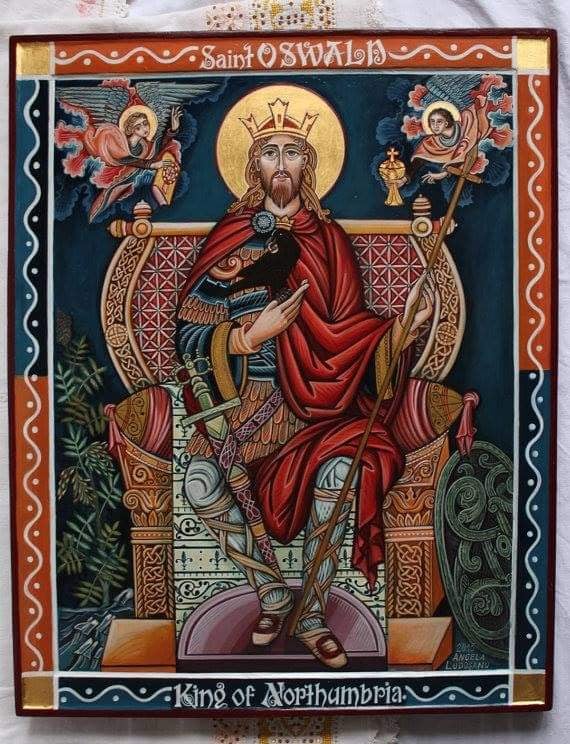The King is Dead

On 5 August 642, after nine years ruling Northumbria when it was the most powerful kingdom in Britain, King Oswald fell to the same combination of chance and inattention that had claimed Cadwallon. Penda, King of Mercia, whose lands Oswald had been encircling with a careful ring of alliances, brought his enemy to battle, apparently at a place and time of his choosing. In one of those characteristic catastrophic reverses that brought down kings from their high places, Oswald was killed and his army dispersed.
What was worse, Penda, a thoroughgoing pagan, dismembered Oswald’s body and stuck his head and hands up on stakes as an offering before an oak tree set aside to Woden, Lord of the Slain.
It seemed that the old gods had struck back. Oswald, champion of the new religion, was not only dead but on display before them. By the metric that had told religious ascendancy up to then, the old ways should rise again.
But it didn’t happen that way.
For Oswald and Aidan had done something extraordinary in the nine years of his reign. They had lain the building blocks of a kingdom that could survive the death of its king.
0 Comments